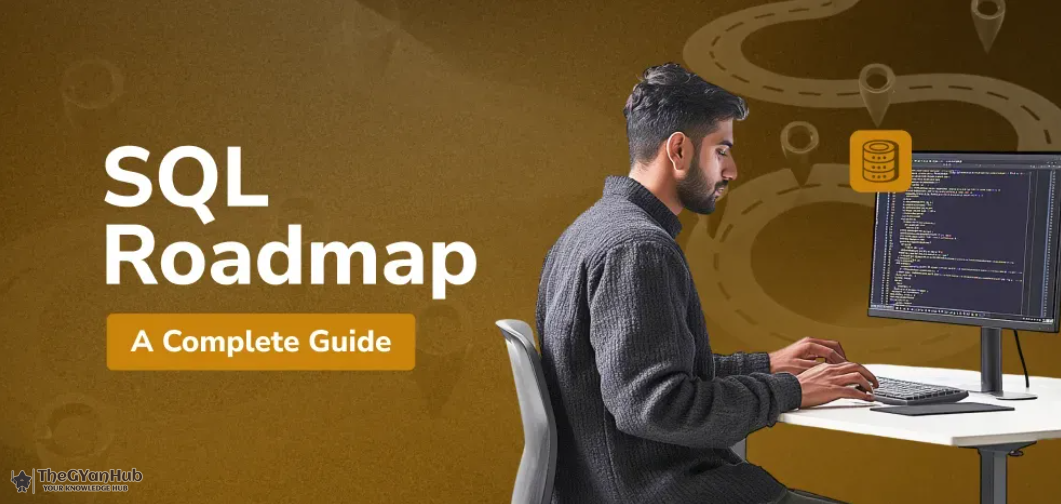I’m a passionate writer who loves exploring ideas, sharing stories, and connecting with readers through meaningful content.I’m dedicated to sharing insights and stories that make readers think, feel, and discover something new.
1. What Should You Know Before Learning SQL?
Before diving into SQL, it’s helpful (but not mandatory) to know:
Basic Computer Knowledge → How files, software, and applications work
Data Concept → Understanding tables, rows, and columns
Logical Thinking → Ability to break problems into smaller steps
Even if you are a complete beginner, SQL is beginner-friendly and easy to grasp.
2. SQL Basics: Where to Start?
Start by learning the fundamentals of SQL and database management:
What is SQL? → Structured Query Language used to manage data in databases
Popular Databases → MySQL, PostgreSQL, SQLite, SQL Server, Oracle
Installing SQL Environment → MySQL Workbench, pgAdmin, or SQLite Studio
At this stage, you should set up your environment and write your first SQL query.
3. Core SQL Concepts
Once your environment is ready, learn the core SQL commands:
Creating Databases and Tables
Inserting Data →
INSERT INTORetrieving Data →
SELECTstatementsFiltering Data →
WHERE,AND,OR,IN,BETWEEN,LIKESorting Data →
ORDER BY ASC/DESCLimiting Results →
LIMIT
These basics are enough to start working with real data.
4. Intermediate SQL Concepts
After mastering the basics, move on to slightly more advanced queries:
Aggregate Functions →
COUNT(),SUM(),AVG(),MIN(),MAX()Grouping Data →
GROUP BYandHAVINGJoins →
INNER JOINLEFT JOINRIGHT JOINFULL JOIN
NULL Handling → Using
IS NULLandIS NOT NULL
These concepts will help you work on complex datasets.
5. Advanced SQL Concepts
Once you are confident with basics and intermediate topics, move to advanced features:
Subqueries → Writing queries inside queries
Views → Saving queries as virtual tables
Stored Procedures & Functions → Automating SQL logic
Indexes → Improving query performance
Transactions →
BEGIN,COMMIT,ROLLBACKConstraints →
PRIMARY KEY,FOREIGN KEY,UNIQUE,CHECK
These skills will make you job-ready in SQL.
6. Practice Projects (Fastest Way to Learn SQL)
The best way to master SQL is by working on real projects:
Student Database → Manage student records with CRUD operations
Library Management System → Track books, authors, and borrowers
E-commerce Orders Database → Handle products, orders, and customers
Movie Ratings Database → Analyze ratings, reviews, and top movies
Sales Report Dashboard → Create monthly sales reports using SQL queries
These projects will give you practical knowledge and confidence.
7. 30-Day SQL Roadmap
Week 1: Basics
Install MySQL/PostgreSQL
Learn about databases and tables
Write simple queries with
SELECT,WHERE,ORDER BY
Week 2: Intermediate
Learn
JOINs(Inner, Left, Right, Full)Practice aggregate functions (
COUNT,SUM,AVG)Work with
GROUP BYandHAVING
Week 3: Advanced
Learn subqueries and nested queries
Work with
Views,Indexes, and constraintsUnderstand stored procedures and triggers
Week 4: Projects + Optimization
Build 2–3 small projects
Optimize queries with indexes
Learn transactions and error handling
By the end of 30 days, you will be confident in SQL and able to work with real-world datasets.
8. Best Resources to Learn SQL
Official MySQL Docs → MySQL Documentation
PostgreSQL Docs → PostgreSQL Documentation
W3Schools SQL Tutorial → W3Schools SQL
FreeCodeCamp SQL Course → YouTube FreeCodeCamp SQL
Udemy → The Complete SQL Bootcamp by Jose Portilla
SQL is a must-have skill for developers, analysts, and anyone working with data. With this 30-day learning roadmap, you can go from beginner to confident SQL user in just one month. The key is to practice daily, build small projects, and keep solving queries on real datasets. Once you complete this journey, you’ll have a strong foundation to work with any relational database.
Related articles in this category

Technology
Weaponization of the Tech Economy: Historical Roots and Strategic Mastery for India's Ascent
February 12, 2026
Explore the historical roots and strategic implications of the tech economy's weaponization, shedding light on urgent lessons for India's future in the global landscape.

Technology
India's Future: Beyond IT Services to Deep Tech Innovation
February 9, 2026
Zerodha's Nithin Kamath emphasizes the need for India to diversify its tech landscape beyond IT services and invest in deep tech to avoid being sidelined in the global market.

Technology
Samsung Galaxy F70e 5G Launched in India: Features, Specs, and Price Revealed
February 9, 2026
The Samsung Galaxy F70e 5G has officially launched in India, boasting a powerful 6,000mAh battery. Discover its display, camera specifications, pricing, and sale date.
learn sql fastsql roadmapsql tutorial for beginnerslearn sql in 30 dayssql learning guidesql step by stepsql projects for beginners






